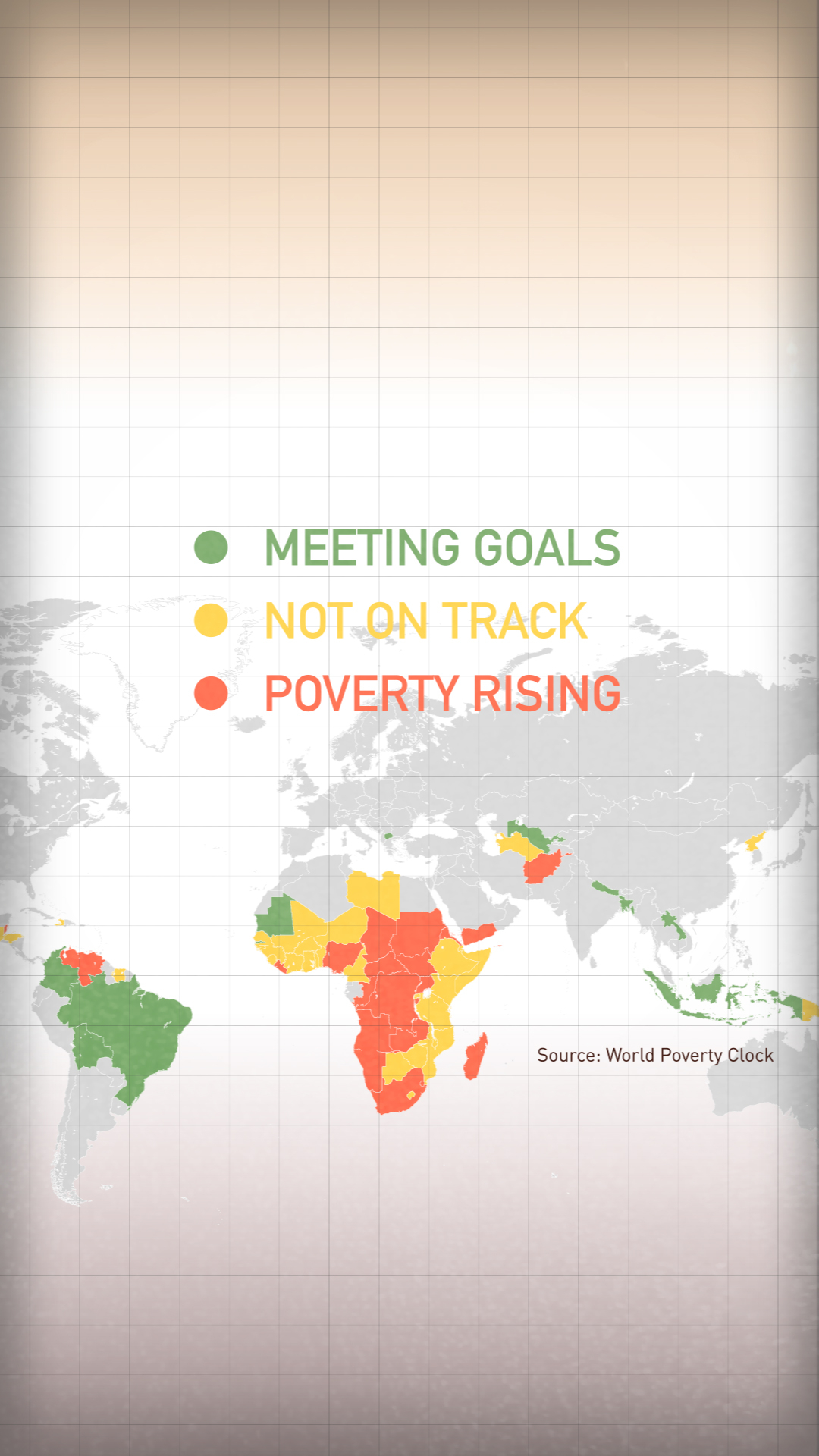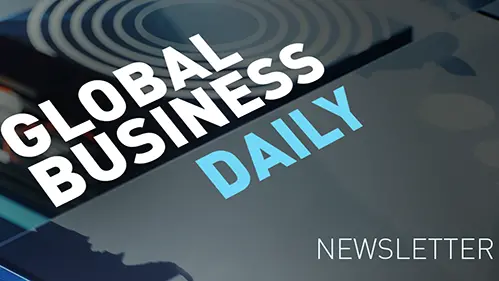"They've taken advantage for a long time, and so we're going to have a deal, I suspect. We're going to be able to make a deal".
The U.S.president Donald Trump met with many world leaders at Davos this week, but perhaps most challenging was Ursula von der Leyen , President of the European Commission. He may have found their meeting challenging, but he's clearly confident as ever of another trade deal.
Also in ** Davos** , we spoke to Milton Cheng of law firm Baker McKenzie about the conversations going on between business leaders today - and in a marked change, shareholders might no longer be the most important audience - are stakeholders taking over? Keep scrolling to find out.
Meanwhile, several big firms have released their Q4 2019 results today - from Netflix to IBM, to Burberry.
And in China, Midea Group has been removed from MSCI China indexes.
You can catch up with more from the World Economic Forum on our
page, where CGTN will take you behind the scenes at 17:15GMT each day.
Catch up with yesterday's chat on what leaders take home from the WEF here
.
Finally, don't forget to sign up
here
to get Global Business Daily direct to your inbox each weekday.
Happy reading,
Patrick Atack
Digital business correspondent

Porto , Portugal, has signed a deal withCRRC Tangshan to provide18 light rail trainsand five years servicing, for $55m.
Netflix reported a fourth-quarter profit of $586m and revenue rose 31% to $5.47 billion , as the online entertainment platform gained8.3 million subscribers outside the U.S. - 1.3m more than anticipated.
Midea Grouphas become the second company to be removed fromthe MSCI China All Shares Indexes andMSCI Global Standard Indexes as its** foreign ownership** reaches 28%
Toyota and Honda are recalling a combined 6 million vehicles over a fault that means airbags may not deploy in a crash.
**IBM **posted revenue growth of 0.08% - $17m - despite the small margin of growth, it marks the first quarterly growth in 18 months for 'Big Blue'.
Johnson Johnson ,the pharma and healthcare producer, announcedQ4 profits up 32% today, with revenue up to $20.75 billion thanks to higher prescription drugs costs.
London's** Burberry** fashion house avoided a poorChristmas period, with Chinese consumers providing a needed boost - chief executive Marco Gobbetti said full-year growth is expected to rise by a "low single-digit" a change from previously predicted flat performance.
It'son the lips of all our clients,that they need to look after not only making money for shareholders, but also being fair to employees
Global Chair of law firm Baker McKenzie Milton Cheng joined Paul Barber of CGTN in Davos, to discuss the trend of 'stakeholder capitalism' which has been a popular topic this year.
Do you think this idea of responsible capitalism is something that businesses here are really starting to take seriously or is this still about the rich and powerful here protecting their profits?
Well, I think this is certainly something that's been a topic of conversation atalmost all of the discussion sessions that we've been in, a number of sessions are being held here in Davos today on stakeholder capitalism, not just looking at shareholder primacy, but also other stakeholders:suppliers, customers, the environment, your employees.
That is very much on people's lips today. And that seems to be a sense that that concrete action is something that all of the stakeholders will want going forward.
And how big an issue is this for your firm, Baker McKenzie?
Well,we've been doing studies together with the World Economic Forum for some time. And what we're looking to do now is to try and take this forward, because the shareholder primacy concept was something that was invented, you know, basically under Milton Friedman's stakeholder primacy theory.
But in fact, it's so much on the lips of all our clients' boards that they need to look after not only making money for shareholders but also being fair to employees. It's part of responsible business.
And tackling the climate emergency is without doubt one of the major topic, the big topic of Davos this year. Do you think this is a pivot point for business?
Well, one would hope so. I mean, for many years, recent years, but certainly for a while, the oil companies, those who are in the fossil fuelindustry, have been looking atthemselves more as energy companies and have also been doing research into other forms of energy as well.
Certainly, something that we would encourage from our perspective, the firm itself Baker McKenzie is trying to reduce our carbon footprint by 92% by 2030.
Andbriefly, this digital tax law, a bit of a truce between the U.S. and France. Is that a good thing?
That is a good thing. Just as the phase one China-U.S.discussion is a good thing. We certainly hope that we can find a resolution to keep the truceand makes it lasting.
Video:
A key topic that's up for debate at Davos is extreme poverty. What can be done to cut the number of people still living on less than two dollars a day? How are patterns of poverty changing? Where do the world's poorest now live?
03:15

 简体中文
简体中文





